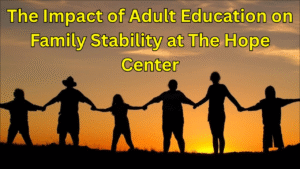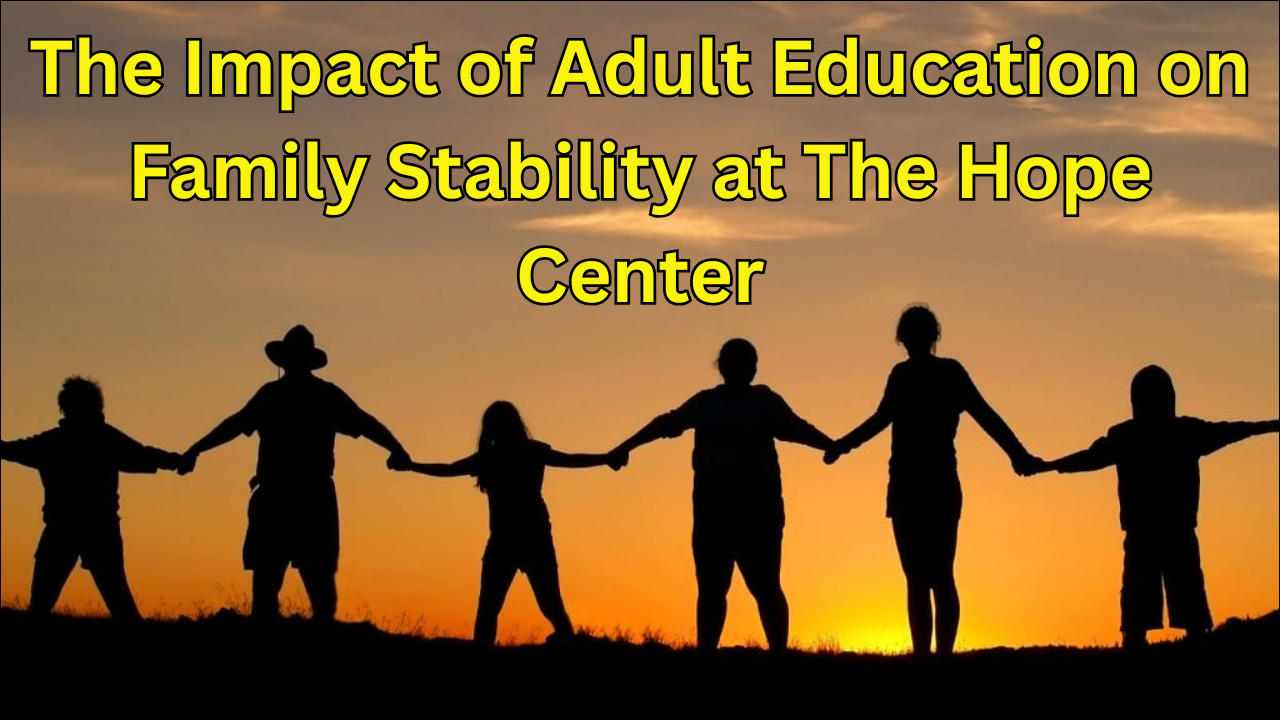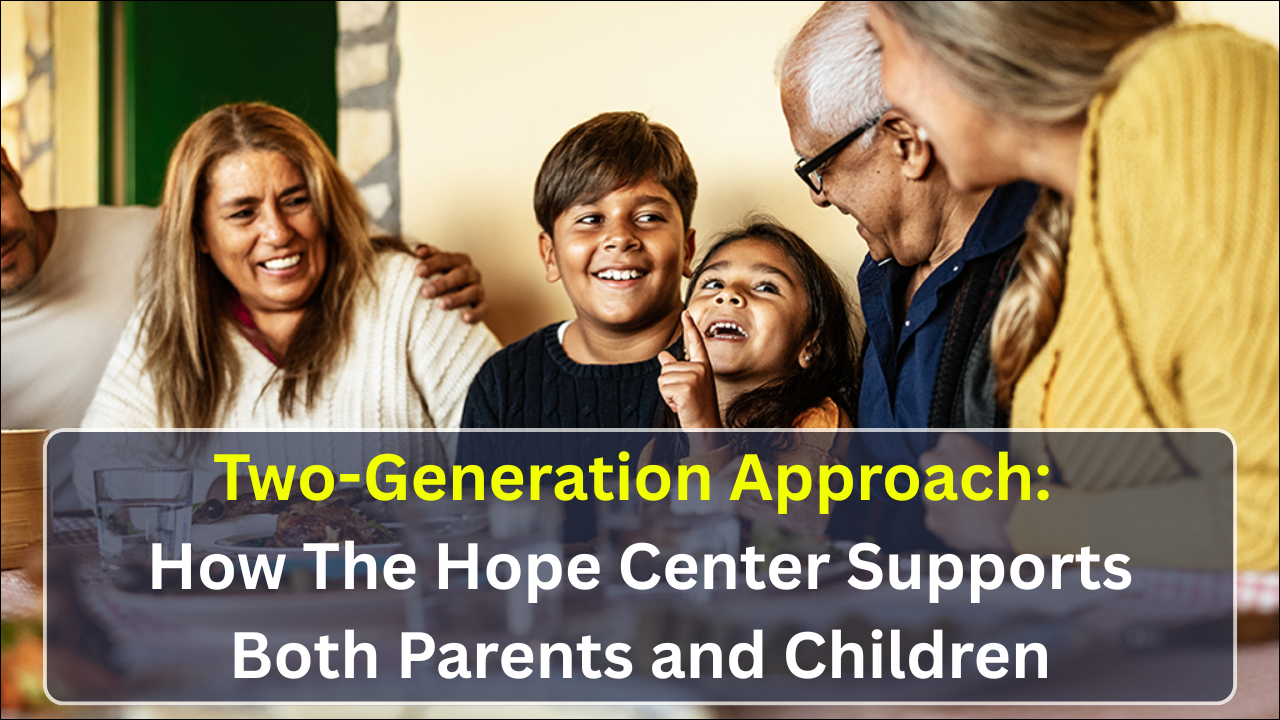
Early childhood education (ECE) is a critical foundation for a child’s lifelong learning, health, and social development. Funding for these programs ensures that children, particularly those from underserved communities, have access to high-quality education, nutritious meals, and supportive learning environments. Organizations like Mini University and The Hope Center for Families in Northwest Dayton illustrate how strategic investment in early education benefits not only children but also families, schools, and the broader community. Adequate funding ensures equitable access, reduces future educational disparities, and fosters a stronger, more resilient society.
Table of Contents
1. Early Childhood Education and Development
Investing in early childhood education directly influences cognitive, emotional, and social development.
- High-quality ECE programs improve language, numeracy, and problem-solving skills.
- Social-emotional learning helps children develop empathy, cooperation, and self-regulation.
- Early interventions identify learning or developmental challenges, allowing for timely support.
- Children from low-income families gain access to resources that prepare them for long-term academic success.
2. The Role of Funding in Ensuring Quality
Adequate funding supports the quality and accessibility of early childhood programs.
- Hiring and retaining qualified teachers ensures effective instruction and care.
- Classrooms equipped with learning materials, books, and educational technology enhance learning experiences.
- Smaller class sizes allow for individualized attention and better student outcomes.
- Comprehensive programs provide health, nutrition, and mental wellness services alongside education.
Key Uses of Early Childhood Education Funding
| Funding Area | Purpose | Impact on Children & Families |
|---|---|---|
| Teacher Salaries | Attract and retain qualified educators | Improved learning quality and stability |
| Learning Materials | Books, toys, educational technology | Enhanced cognitive and creative development |
| Health & Nutrition | Meals, screenings, mental health support | Healthy growth and school readiness |
| Facility Maintenance | Safe and engaging learning environments | Reduced absenteeism and increased attendance |
| Family Engagement Programs | Workshops, parent education | Strengthened home support for learning |
3. Economic and Social Benefits of ECE Funding
Funding early childhood education generates long-term societal benefits.
- Children who attend well-funded ECE programs are more likely to graduate from high school and pursue higher education.
- Families experience reduced financial stress when affordable, high-quality childcare is available.
- Workforce participation increases as parents can work while their children are in safe educational settings.
- Communities benefit from reduced crime rates, improved public health, and stronger social cohesion.
4. Supporting Underserved Populations
Targeted funding addresses inequities and ensures access for children in vulnerable communities.
- Low-income families receive affordable or subsidized childcare, reducing economic barriers.
- Programs support children with disabilities through specialized services and individualized education plans.
- Multilingual programs help non-native speakers develop language and literacy skills.
- Outreach and transportation support increase participation among families facing logistical challenges.
5. Collaboration with Community Organizations
Community organizations leverage funding to provide holistic support to children and families.
- The Hope Center integrates ECE funding with health, nutrition, and family support services.
- Partnerships with local hospitals ensure regular health screenings and preventive care.
- Adult education programs complement early learning by empowering parents.
- Nonprofit partnerships expand access to additional enrichment activities, such as arts, STEM, and physical education.
Community Integration of ECE Funding
| Organization | Funding Utilization | Community Impact |
|---|---|---|
| Mini University | Curriculum, classroom materials | Enhanced school readiness |
| The Hope Center | Health screenings, parent workshops | Strengthened family support and engagement |
| Local Hospitals | Pediatric care and nutrition | Healthy children are ready to learn |
| Nonprofits | Enrichment programs and resources | Broader access to holistic education |
6. Preventing Long-Term Educational Gaps
Early childhood education funding reduces disparities in academic achievement and life outcomes.
- Children who receive quality ECE are less likely to require special education services later.
- Early learning reduces the likelihood of grade repetition and improves literacy and numeracy scores.
- Investments in ECE promote equity by providing children from all backgrounds a fair start.
- Preventive support addresses behavioral and developmental challenges before they escalate.
7. Funding Challenges and Solutions
Despite clear benefits, ECE programs face funding challenges that require strategic solutions.
- Limited Public Funding: Advocating for increased federal and state investment ensures sustainability.
- High Operational Costs: Partnerships with philanthropic organizations supplement government funding.
- Workforce Shortages: Offering competitive salaries and professional development attracts qualified educators.
- Access Barriers: Subsidies, scholarships, and transportation programs increase program reach.
8. Measuring the Impact of Funding
Evaluation and data collection ensure that ECE funding achieves intended outcomes.
- Academic assessments track literacy, numeracy, and social-emotional development.
- Health indicators monitor growth, nutrition, and wellness.
- Parental engagement and satisfaction surveys evaluate family impact.
- Long-term studies measure high school graduation rates, college enrollment, and workforce success.
9. Long-Term Vision for ECE Funding
Sustained investment in early childhood education fosters stronger communities and equitable opportunities.
- Expansion of high-quality programs ensures all children have access regardless of socioeconomic status.
- Integration with healthcare, mental health, and family services provides holistic support.
- Workforce development initiatives for educators maintain program excellence.
- Policy advocacy ensures that early childhood education remains a priority for public investment.
Long-Term Outcomes of ECE Funding
| Focus Area | Outcome | Community Benefit |
|---|---|---|
| Education | School readiness and academic success | Higher graduation rates and a skilled workforce |
| Family Stability | Access to affordable childcare | Increased parental employment and economic security |
| Health & Wellness | Regular screenings and nutrition programs | Reduced childhood illnesses and developmental delays |
| Social Equity | Access for underserved populations | Reduced achievement gaps and systemic inequities |
| Community Development | Stronger social networks and civic engagement | Resilient and thriving communities |
Summing Up
Funding early childhood education is essential for fostering individual, family, and community success. Programs supported by strategic investments, such as those offered by Mini University and The Hope Center, provide children with the skills and resources needed for academic achievement while empowering families and strengthening communities. Adequate funding ensures equitable access, high-quality instruction, and comprehensive support services. By prioritizing early childhood education, communities can break cycles of poverty, reduce disparities, and build a foundation for a prosperous and resilient future.








